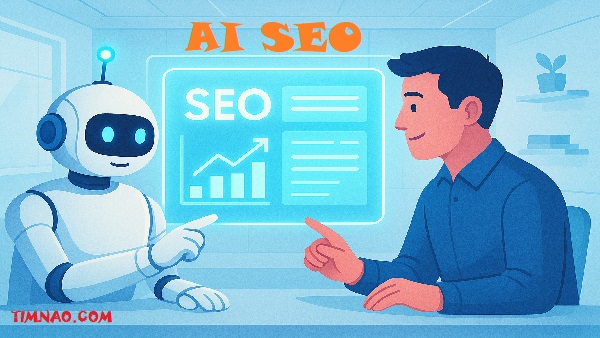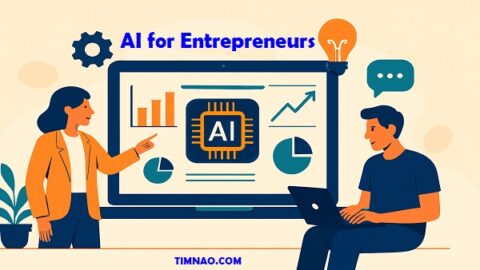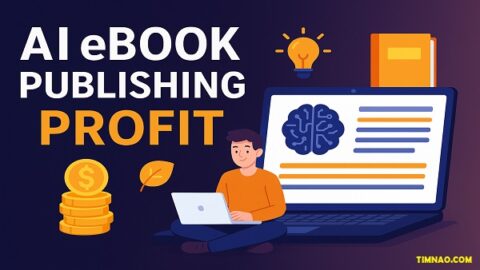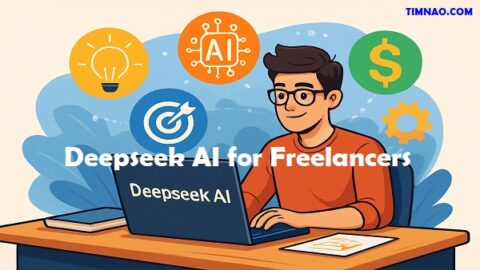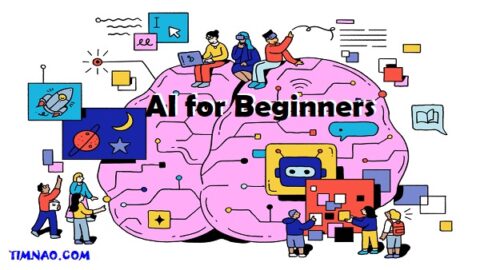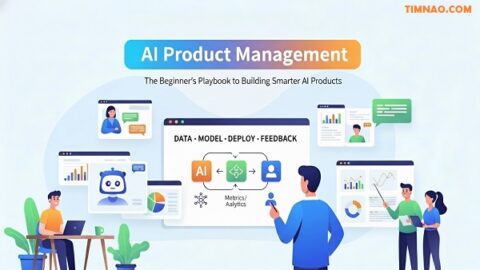🚀 Unlock Astonishing SEO Success: Your Ultimate Beginner’s Guide to AI SEO!
Welcome, future SEO superstar! If you’re new to Search Engine Optimization (SEO) and have been hearing the buzz around Artificial Intelligence (AI), you’re in the right place. The world of digital marketing is undergoing a massive transformation, and AI SEO is at the very heart of it. This guide is designed specifically for beginners, aiming to demystify AI for SEO beginners and show you how you can automate SEO with AI to achieve incredible results, even if you’re just starting out.
The digital landscape in 2025 is more competitive than ever. Standing out requires not just hard work, but smart work. AI offers a powerful toolkit to level the playing field, making advanced SEO techniques accessible to everyone. Forget the intimidating jargon and complex processes; we’re going to break it all down into simple, actionable steps. Get ready to discover how AI can become your most valuable SEO assistant!
📖 Table of Contents
- 🌟 Introduction: What is AI SEO and Why It’s a Game-Changer for Beginners?
- 🤖 Understanding the Magic: How AI is Revolutionizing SEO Fundamentals
- 🧠 AI-Powered Search Engines: The New Smarts Behind Your Searches
- 🔑 AI in Keyword Research: Finding Goldmines with Smart Tools
- ✍️ AI in Content Creation: Your New Creative Partner
- 🛠️ AI in Technical SEO: Simplifying the Complex Bits
- 🔗 AI in On-Page & Off-Page SEO: Optimizing Like a Pro
- 🚀 Getting Started: Your First Steps into AI SEO as a Beginner
- 💡 Embracing the Right Mindset for AI SEO Success
- 🛠️ Essential (and Often Free!) AI Tools to Explore Today
- 🎯 Practical AI SEO in Action: A Beginner’s Playbook
- 🔍 Supercharging Keyword Research with AI Insights
- 📝 Crafting Compelling Content with AI Assistants (The Ethical Way)
- 📄 Automating On-Page Elements (Titles, Metas, Schema) with AI
- ⚙️ Simplifying Technical SEO Checks with Your AI Toolkit
- 📈 Exploring AI for Link Building Ideas & Social Media Mastery
- 🧑💻 The Human Touch: Why Your Brain is Still the Most Powerful SEO Tool
- ♟️ The Indispensable Role of Human Strategy and Critical Oversight
- 🌿 Ethical AI SEO: Creating Authentic, Valuable, and Trustworthy Content
- 🔮 Peeking into Tomorrow: The Exciting Future of AI in SEO
- 🏁 Conclusion: Your AI SEO Journey Starts Now!
🌟 Introduction: What is AI SEO and Why It’s a Game-Changer for Beginners?
Let’s start with the basics. AI SEO refers to the use of Artificial Intelligence technologies to enhance and automate various aspects of Search Engine Optimization. Think of it as having a super-smart assistant that can analyze vast amounts of data, identify patterns, generate content ideas, and even help with technical tasks much faster and more efficiently than a human ever could. For anyone diving into AI for SEO beginners, this is incredibly exciting news.
Why is it a game-changer, especially for those new to the field? Traditionally, SEO involved a steep learning curve and many time-consuming manual processes. You’d spend hours on keyword research, trying to figure out what terms people are searching for. You’d labor over content creation, striving to make it engaging and optimized. And the technical side? That could feel like learning a whole new language.
AI changes all of that. It democratizes SEO expertise. Tools powered by AI can guide you through these complex tasks, offering data-driven recommendations and automating repetitive work. This means beginners can achieve more professional results faster, allowing them to compete more effectively even without years of experience. It’s about leveraging smart technology to automate SEO with AI, freeing you up to focus on strategy and understanding your audience. The power of AI in SEO lies in its ability to process information at a scale and speed that’s superhuman, providing insights that can dramatically improve your website’s visibility and ranking.
🤖 Understanding the Magic: How AI is Revolutionizing SEO Fundamentals
Artificial Intelligence isn’t just a buzzword; it’s a powerful force actively reshaping the core components of SEO. From how search engines understand your queries to how content is created and optimized, AI is weaving its way into every facet. For newcomers, grasping these fundamental shifts is key to leveraging AI SEO effectively.
🧠 AI-Powered Search Engines: The New Smarts Behind Your Searches
The search engines themselves, like Google and Bing, are becoming increasingly intelligent thanks to AI. They’ve moved far beyond simple keyword matching. Modern search algorithms use sophisticated AI models, including Machine Learning (ML) and Natural Language Processing (NLP), to understand the context and intent behind your search queries. This means they’re better at figuring out what you really mean, even if your phrasing isn’t perfect.
Google’s AI Overviews (formerly Search Generative Experience or SGE) and Bing’s Generative Search are prime examples, where AI generates summaries and direct answers at the top of the search results page. This AI-driven evolution means that creating high-quality, comprehensive content that truly satisfies user intent is more important than ever. Your AI for SEO beginners strategy must focus on E-E-A-T (Experience, Expertise, Authoritativeness, and Trustworthiness) because AI is getting better at recognizing and rewarding it.
🔑 AI in Keyword Research: Finding Goldmines with Smart Tools
Keyword research is the cornerstone of SEO – it’s about understanding the words and phrases your target audience uses when searching for information, products, or services. Traditionally, this could be a painstaking process of brainstorming, using basic tools, and analyzing spreadsheets. AI has revolutionized this. AI-powered tools can analyze massive datasets of search queries, identify emerging trends, and uncover valuable long-tail keywords (more specific, less competitive phrases) that you might have missed.
These tools can also assess keyword difficulty and search volume with greater accuracy, helping you prioritize your efforts. For instance, AI can help you understand not just what people search for, but why (search intent), allowing you to tailor your content more effectively. This means you can automate SEO with AI in terms of data gathering and analysis, giving you a strategic edge in your content planning.
✍️ AI in Content Creation: Your New Creative Partner
Content is king, but creating high-quality, engaging, and SEO-optimized content consistently is a major challenge, especially for beginners. Generative AI tools have emerged as powerful assistants in this domain. These tools can help you brainstorm topics, generate outlines, draft articles, product descriptions, and even create marketing copy.
AI can assist in producing text, images, and even video and audio content. However, it’s crucial to remember that AI is an assistant, not a replacement for human creativity and oversight. The best AI SEO approach involves using AI to generate initial drafts or ideas, which are then refined, fact-checked, and infused with your unique brand voice and expertise.
🛠️ AI in Technical SEO: Simplifying the Complex Bits
Technical SEO refers to optimizing your website’s infrastructure to help search engine crawlers find, understand, and index your content efficiently. This can be one of the most daunting aspects for beginners, involving things like site speed, mobile-friendliness, XML sitemaps, robots.txt, and structured data (schema markup).
AI is making significant inroads here too. AI tools can help automate technical SEO audits, identify issues like broken links or crawl errors, and even assist in generating schema markup. For example, AI can analyze your site’s performance and provide actionable recommendations for improvement. This allows beginners to tackle technical SEO challenges with more confidence and precision, ensuring their website is technically sound and easily accessible to search engines.
🔗 AI in On-Page & Off-Page SEO: Optimizing Like a Pro
On-page SEO involves optimizing individual web pages (content, title tags, meta descriptions, internal links), while off-page SEO focuses on building your website’s authority and reputation through external signals (like backlinks from other websites and social media presence). AI offers powerful assistance in both areas.
For on-page SEO, AI tools can analyze your content and suggest improvements for keyword placement, readability, and meta tag optimization. They can help ensure your pages are perfectly tuned for your target keywords and user intent. When it comes to off-page SEO, AI can help identify potential link-building opportunities, analyze competitor backlink profiles, and even assist in crafting outreach emails. AI can also analyze social media trends and suggest content strategies to improve engagement and social signals, which indirectly support your SEO efforts.
🚀 Getting Started: Your First Steps into AI SEO as a Beginner
Feeling excited about the potential of AI SEO? Great! Starting your journey doesn’t have to be overwhelming. With the right mindset and a few key tools, you can begin to harness the power of AI to boost your SEO efforts almost immediately. This section will guide you through those crucial first steps.
💡 Embracing the Right Mindset for AI SEO Success
Before diving into specific tools or techniques, it’s important to cultivate the right mindset. First, understand that AI is a tool to augment your abilities, not completely replace them. While AI can automate tasks and provide valuable insights, human strategy, creativity, and ethical judgment remain paramount.
Second, be open to learning and experimentation. The field of AI for SEO beginners is rapidly evolving, with new tools and techniques emerging constantly. What works today might be refined tomorrow. Stay curious, try different approaches, and don’t be afraid to iterate. The goal is to find what works best for your specific needs and audience.
Finally, focus on providing value. Search engines, even AI-powered ones, aim to connect users with the most relevant and helpful information. Your AI SEO efforts should always be guided by the principle of creating a better experience for your users and delivering genuine value. If you keep this in mind, you’ll be on the right track.
🛠️ Essential (and Often Free!) AI Tools to Explore Today
The good news for beginners is that you don’t need a hefty budget to start experimenting with AI SEO. Many powerful tools offer free tiers or trials that are perfect for learning the ropes. Here are a few categories and examples to get you started:
-
Generative AI Chatbots: These are your all-around assistants for brainstorming, content ideation, drafting, and even getting simple explanations of SEO concepts.
- ChatGPT (OpenAI): Widely popular and versatile. Offers a robust free version. (Link to ChatGPT)
- Gemini (Google): Google’s own AI model, increasingly integrated into its services. (Link to Gemini)
- Claude (Anthropic): Known for its strong reasoning and writing capabilities. (Link to Claude)
- Perplexity AI: Excellent for research and getting answers with source citations. (Link to Perplexity AI)
-
SEO Platforms with AI Features (Often have limited free versions or trials):
- Semrush: A comprehensive SEO toolkit with many AI-driven features for keyword research, site audits, and content analysis. (Link to Semrush)
- Ahrefs: Another top-tier SEO platform known for its powerful backlink analysis and keyword tools, increasingly incorporating AI. (Link to Ahrefs)
- Moz: Offers a suite of SEO tools, including those for keyword research and site audits, with AI enhancements. (Link to Moz)
-
Content Optimization & Writing Assistants:
- Grammarly: Not just for grammar! Its premium version offers suggestions for tone, clarity, and even plagiarism checks, often AI-enhanced. (Link to Grammarly)
- Surfer SEO: Helps optimize content for target keywords by analyzing top-ranking pages. (Link to Surfer SEO)
- Jasper.ai (formerly Jarvis): A popular AI writing assistant for generating various types of content. (Link to Jasper.ai)
-
Google’s Own Tools (Free):
- Google Search Console: Essential for monitoring your site’s performance in Google Search, identifying technical issues, and understanding how Google sees your site. (Link to Google Search Console)
- Google Analytics: Provides detailed insights into your website traffic and user behavior. (Link to Google Analytics)
- Google Keyword Planner: Useful for initial keyword research, integrated with Google Ads but accessible without running campaigns. (Link to Google Keyword Planner)
Start by exploring the free versions of these tools. Use the chatbots to ask questions, generate ideas, and even draft short pieces of content. Get familiar with Google Search Console and Analytics to understand your website’s baseline performance. This hands-on experience is invaluable as you learn to automate SEO with AI.
🎯 Practical AI SEO in Action: A Beginner’s Playbook
Now that you have the right mindset and know some tools, let’s get practical. How can you, as a beginner, actually use AI SEO to improve your website? This section provides a playbook with actionable strategies for key SEO tasks. Remember, the goal is to use AI as a powerful assistant to make your work more effective and efficient.
🔍 Supercharging Keyword Research with AI Insights
Keyword research is foundational, and AI can make you much better at it. Instead of guessing or manually sifting through endless lists, AI tools can quickly identify high-potential keywords.
- Brainstorming Seed Keywords: Start by giving an AI chatbot (like ChatGPT or Gemini) a general topic related to your website or business. Ask it to brainstorm a list of “seed keywords” – broad terms to start your research. For example: “Suggest seed keywords for a blog about sustainable gardening for beginners.”
- Expanding to Long-Tail Keywords: Once you have seed keywords, ask the AI to generate long-tail variations. These are longer, more specific phrases that often have lower competition and higher conversion rates. Example: “Give me long-tail keywords related to ‘organic vegetable gardening for small spaces’.”
- Understanding Search Intent: For any given keyword, ask your AI tool to help you understand the likely search intent (informational, navigational, commercial, transactional). This helps you create content that truly matches what users are looking for. Example: “What is the search intent for ‘best pruning shears for roses’?”
- Analyzing Competitors: Some advanced AI SEO platforms (like Semrush or Ahrefs, often with paid tiers) can analyze your competitors’ top keywords. You can also manually input a competitor’s article into a chatbot and ask it to identify the main keywords and topics.
- Clustering Keywords: AI can help group related keywords into clusters or themes. This is useful for planning content pillars and ensuring comprehensive coverage of a topic. “Cluster these keywords related to indoor plants into relevant sub-topics.”
By using AI for these tasks, you can develop a much more robust and data-driven keyword strategy, even as a beginner learning about AI for SEO beginners.
📝 Crafting Compelling Content with AI Assistants (The Ethical Way)
AI can be an incredible partner in content creation, from generating ideas to drafting entire sections. However, it’s crucial to use these tools ethically and responsibly.
- Generating Content Ideas & Outlines: Stuck for blog post ideas? Describe your niche to an AI chatbot and ask for suggestions. Once you have a topic, ask the AI to create a detailed outline, including H2 and H3 headings. Example: “Generate a blog post outline for ‘The benefits of AI in education for K-12 students’.”
- Drafting Initial Content: AI can write initial drafts of paragraphs, sections, or even entire articles. Provide the AI with your outline and key points for each section. Remember, this is a first draft. Example: “Write an introductory paragraph for a blog post titled ‘AI SEO for Small Businesses,’ highlighting the challenges small businesses face and how AI can help.”
- Rephrasing and Improving Readability: If you have existing content that’s clunky or hard to read, AI tools (like Grammarly or chatbots) can help rephrase sentences, simplify language, and improve flow.
- The Ethical Imperative: Human Oversight & Originality:
- Never publish raw AI-generated content. Always review, edit, fact-check, and add your own unique insights, examples, and voice.
- Ensure factual accuracy. AI models can “hallucinate” or generate incorrect information. Cross-check any factual claims.
- Add your E-E-A-T: Your Experience, Expertise, Authoritativeness, and Trustworthiness are what will make your content stand out. AI can’t replicate this.
- Check for Plagiarism: While AI aims to create original text, it’s trained on existing data. Use plagiarism checkers if you’re concerned. Some AI tools also offer to check for AI-generated content patterns.
- Be Transparent (Optional but Good Practice): Some choose to disclose when AI has been used in content creation.
Using AI as a collaborative tool for content allows you to automate SEO with AI in terms of production speed, while still ensuring high-quality, ethical, and valuable output.
📄 Automating On-Page Elements (Titles, Metas, Schema) with AI
Optimizing on-page elements is crucial for telling search engines what your pages are about and for encouraging users to click. AI can help automate the creation of these elements.
- Generating SEO Titles & Meta Descriptions: Provide an AI tool with your page content or a summary, along with your target keyword. Ask it to generate several options for an SEO title (under 60 characters) and a meta description (under 160 characters). Example: “My blog post is about ‘easy home composting tips for apartment dwellers.’ The target keyword is ‘apartment composting.’ Generate 3 SEO titles and 2 meta descriptions.”
- Creating FAQs: Well-structured FAQ sections can improve user experience and help you capture featured snippets. Give your AI assistant the content of your page and ask it to generate relevant FAQs and concise answers. Example: “Based on this article about indoor herb gardening, generate 5 FAQs with answers.”
- Generating Schema Markup: Schema markup is code that helps search engines understand your content even better, potentially leading to rich snippets in search results (like star ratings or event details). While more technical, AI tools are emerging that can help generate basic schema markup (e.g., for articles, FAQs, products). For beginners, you might start by asking an AI chatbot to explain what schema type is relevant for your page and provide an example. “My page is a recipe for vegan lasagna. What schema markup is relevant, and can you show me an example?”
Always review AI-generated on-page elements to ensure they are accurate, compelling, and naturally incorporate your keywords.
⚙️ Simplifying Technical SEO Checks with Your AI Toolkit
Technical SEO can be intimidating, but AI tools can help simplify basic checks and guide you toward solutions.
- Identifying Common Issues: While dedicated tools like Google Search Console are essential, you can describe a technical SEO problem to an AI chatbot to get explanations and potential troubleshooting steps. Example: “My website images are loading slowly. What are common reasons and how can I fix this?”
- Understanding Technical Jargon: Encounter a technical SEO term you don’t understand? Ask an AI chatbot for a simple explanation. Example: “What is a canonical URL and why is it important for SEO?”
- Analyzing Page Speed Insights: Tools like Google PageSpeed Insights provide reports on your website’s speed. If you find the recommendations confusing, you can copy-paste specific suggestions into an AI tool and ask for a clearer explanation or step-by-step guidance on how to implement them.
- Checking for Mobile-Friendliness: While you should use Google’s Mobile-Friendly Test, you can ask AI for general best practices for mobile-friendly design.
For serious technical SEO audits, you’ll eventually need dedicated tools or professional help. However, for AI for SEO beginners, AI chatbots can be excellent learning aids and preliminary diagnostic tools.
📈 Exploring AI for Link Building Ideas & Social Media Mastery
Off-page SEO, particularly link building (getting other websites to link to yours) and social media, significantly impacts your site’s authority and visibility. AI can offer fresh ideas and streamline some processes.
- Brainstorming Link Building Opportunities: Describe your niche and content to an AI tool and ask it to suggest types of websites or content that might be interested in linking to you. Example: “My blog has an in-depth guide on ‘budget travel in Southeast Asia.’ What kinds of websites or blogs might be interested in this content for link building?” While AI won’t build the links for you, it can spark ideas for your outreach strategy.
- Crafting Outreach Email Drafts: Once you’ve identified a potential link opportunity, AI can help you draft an initial outreach email. Provide the context, and ask for a polite and professional email draft. Remember to personalize it heavily before sending!
- Generating Social Media Content: AI can help create engaging social media posts to promote your website content across different platforms (X, Facebook, LinkedIn, Instagram). Provide a link to your blog post or describe your content, and ask for a few social media captions tailored to specific platforms. Example: “Write 3 tweets and 1 Facebook post to promote my new article on ‘AI SEO for beginners’.”
- Hashtag Suggestions: AI tools can suggest relevant hashtags for your social media posts to increase their discoverability.
Remember, authentic relationship-building is key in off-page SEO. Use AI as a tool to enhance your efficiency, not to replace genuine interaction.
🧑💻 The Human Touch: Why Your Brain is Still the Most Powerful SEO Tool
While AI SEO tools offer incredible power and efficiency, it’s absolutely crucial to understand that they are tools, not magic wands. Your human intelligence, strategic thinking, creativity, and ethical judgment are more important than ever in the age of AI. Let’s explore why the human touch remains indispensable.
♟️ The Indispensable Role of Human Strategy and Critical Oversight
AI can process data and execute tasks at lightning speed, but it lacks true understanding, consciousness, and the ability to create a genuine, overarching strategy that aligns with nuanced business goals and brand identity.
- Strategic Direction: AI can suggest keywords or content topics, but you need to decide if they align with your brand’s mission, your target audience’s deeper needs, and your long-term business objectives. An AI might identify a high-volume keyword, but it won’t inherently know if that keyword will attract the right kind of visitor for your specific goals.
- Understanding Nuance and Context: Language is complex and filled with cultural nuances, sarcasm, and implied meanings that AI can still struggle with. Your human understanding is vital for ensuring content resonates authentically and appropriately with your audience.
- Adapting to Evolving Landscapes: The SEO and AI landscapes are constantly changing. Human experts are needed to interpret these changes, adapt strategies, and make informed decisions that AI, based on past data, might not anticipate.
- Critical Evaluation of AI Output: AI-generated content or recommendations should never be accepted blindly. Humans must critically evaluate AI’s suggestions, fact-check information, refine language, and ensure quality. AI can draft, but you must perfect.
Think of AI as an incredibly skilled researcher and intern. It can gather information, draft documents, and point out patterns, but the CEO (you!) makes the final strategic decisions.
🌿 Ethical AI SEO: Creating Authentic, Valuable, and Trustworthy Content
With the ease of content generation offered by AI, there’s a temptation to churn out vast quantities of material. However, this approach can backfire. Search engines, and more importantly, users, value authentic, high-quality, and trustworthy content.
- Prioritize Quality Over Quantity: Don’t use AI to create spammy, low-value content. Focus on using AI to enhance your ability to produce genuinely helpful and well-researched material. Google’s E-E-A-T guidelines (Experience, Expertise, Authoritativeness, Trustworthiness) are paramount. AI can help with the ‘A’ and ‘T’ by ensuring consistency and good structure, but the ‘E’ and first ‘E’ come from human experience and expertise.
- Authenticity and Brand Voice: Your brand has a unique voice and perspective. AI-generated content can be generic. It’s your job to infuse it with your brand’s personality, ensuring it sounds authentic and connects with your audience.
- Avoiding Misinformation: AI models can sometimes generate plausible-sounding but incorrect information (“hallucinations”). Rigorous fact-checking by humans is essential to maintain trust and credibility. Publishing misinformation can severely damage your reputation.
- Transparency: Consider being transparent about your use of AI in content creation if it’s substantial. While not always required, it can build trust with your audience.
- User Experience First: Ultimately, SEO is about connecting users with the information they need in the best possible way. Use AI to enhance user experience, not to trick algorithms. If your content is valuable and user-friendly, search engines will recognize that over time.
Using AI for SEO beginners responsibly means leveraging its power to enhance human capabilities, not to cut corners or compromise on quality and ethics.
🔮 Peeking into Tomorrow: The Exciting Future of AI in SEO
The integration of AI into SEO is not a fleeting trend; it’s the future. As AI technology continues to advance at an astonishing pace, its role in shaping how we optimize for search and create content will only become more profound.
We can expect AI to become even more sophisticated in understanding user intent, leading to more personalized search experiences. Voice search and visual search, both heavily reliant on AI, will likely continue to grow in importance. AI tools will become better at predictive analytics, helping SEO professionals anticipate trends and adapt strategies proactively. The automation capabilities will expand, potentially handling even more complex SEO tasks with greater autonomy.
For those learning how to automate SEO with AI, this means that continuous learning and adaptation will be key. Staying curious about new AI tools and methodologies will be crucial for staying ahead. The core principles of providing value, understanding your audience, and creating high-quality content will remain, but the tools and techniques we use to achieve these goals will be increasingly AI-driven. The future of AI SEO is bright and full of opportunities for those willing to embrace it.
🏁 Conclusion: Your AI SEO Journey Starts Now!
You’ve made it through your beginner’s guide to the exciting world of AI SEO! We’ve covered what AI SEO is, how it’s revolutionizing everything from keyword research to content creation and technical optimization, and how you, even as a beginner, can start using these powerful tools. The key takeaway is that AI for SEO beginners is not about replacing human effort, but about amplifying it.
By learning to automate SEO with AI for repetitive tasks, you free up your valuable time and brainpower to focus on strategy, creativity, and building genuine connections with your audience. Remember to use AI ethically, always prioritizing quality and authenticity. The tools are becoming more accessible and powerful every day, leveling the playing field and offering incredible opportunities for growth.
Your AI SEO journey is just beginning. Start exploring the tools mentioned, experiment with different techniques, and most importantly, keep learning. The digital landscape will continue to evolve, and with AI as your assistant, you’re now better equipped to navigate it and achieve astonishing SEO success!
Reference video:

